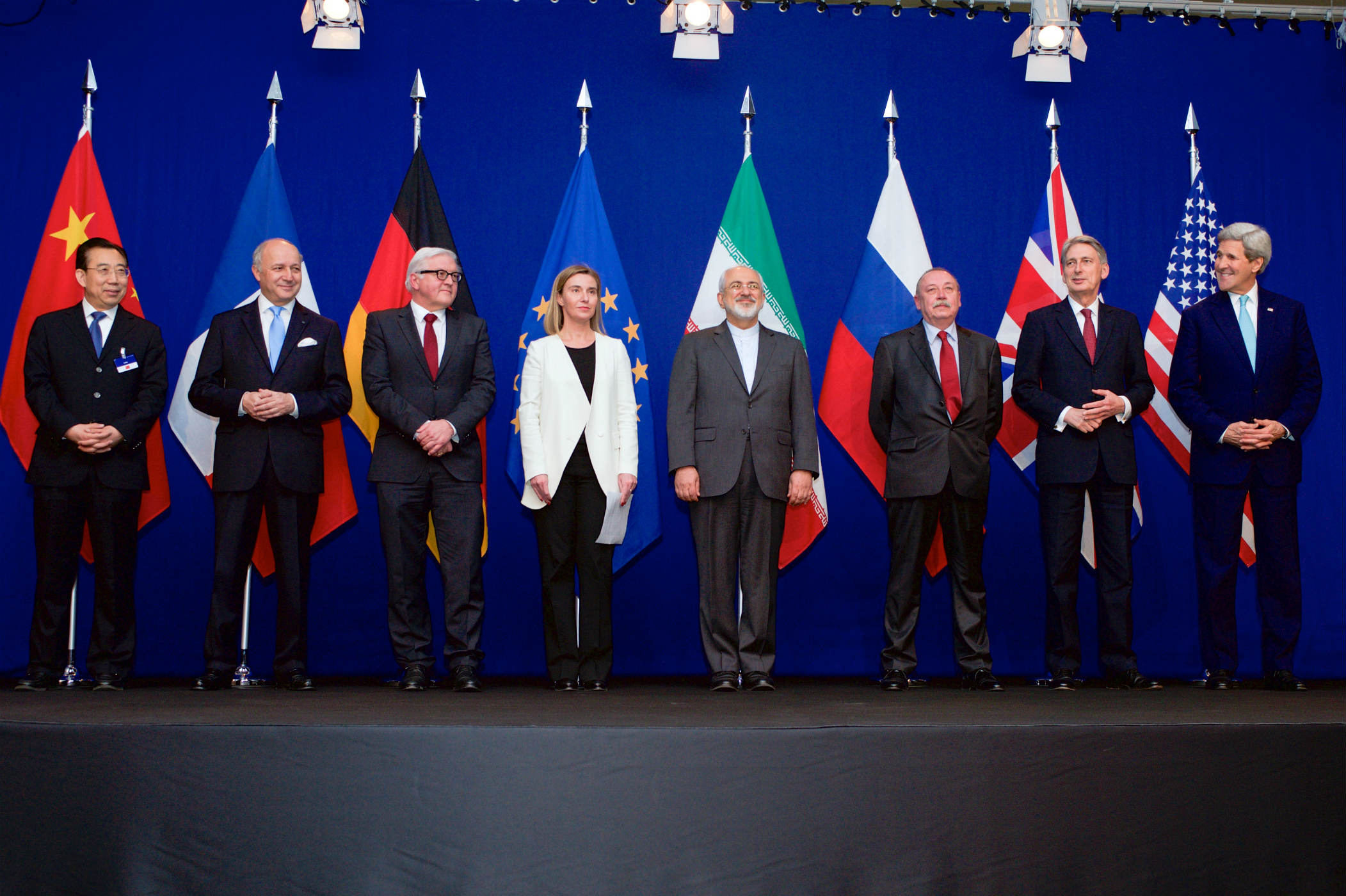On 20 November, the APPG on Global Security and Non-Proliferation held a meeting to discuss the state of US relations with Iran and North Korea following the Singapore summit and reinstatement of US sanctions against Iran.
Mark Fitzpatrick, Associate Fellow and former Director of IISS-Americas and Ambassador (retd) Sir Richard Dalton assessed differences in the US government’s strategy towards North Korea and Iran – two of the most prominent challenges to the non-proliferation regime.
Mark Fitzpatrick explained the role of sanctions in the US’ ‘maximum pressure’ strategy in Iran and North Korea. While the US is applying unrelenting pressure on the country’s economy, the intended outcome of the sanctions is less clear. He noted that Secretary of State Pompeo’s thirteen demands of Iran revealed a lack of policy prioritisation within the US government. Rather than pursuing single concrete goals, and specifically the goal non-proliferation, the United States seems intent on generally weakening the regime, so as to support their ally, Saudi Arabia. In North Korea, he noted that the US sanctions regime had been weakened after the Singapore summit. President Trump’s concessions broadly signalled to China it could ease off economic pressure. He noted that difficulties in dealing with North Korea going forward. Pyongyang has insisted that all US sanctions should stop before it allows inspectors into their nuclear sites, stops testing or begins to dismantle weapons. Similarly, Pyongyang’s preference to deal with the President directly in negotiations, due to the increased likelihood of extracting concessions, has hampered the State Department’s ability to negotiate in the interim.
The difference in US attitudes towards Iran and North Korea can be explained in two ways. First, Tehran does not want to validate President Trump and the imagery of a summit similar to Singapore is unlikely to help domestically. Both Kim Jong-Un and President Trump, on the other hand, appear to seek opportunities to revel in grand political choreography. Second, while regional pressure in North East Asia from South Korea supports engagement with North Korea, regional pressure for engaging with Iran does not exist in the Middle East. On the contrary, the close relationship between the United States and Saudi Arabia means that pressure against Iran is more likely.
Sir Richard Dalton discussed domestic Iranian dynamics in more detail, positing that Iran’s government would remain stable despite the pressure and subsequent recession. He noted that Iranians have become largely resigned to the current situation, having lost faith in their government. Yet change is unlikely as there are few alternative leaders, state security remains pervasive and election are closely monitored and controlled. Indeed, Sir Dalton highlighted that Khomenei has all main political forces behind him. If the remaining signatories of the Iran Deal uphold existing trade, domestic economic discontent will be manageable, hence Tehran’s continued interest in the Deal. Sir Dalton highlighted that negotiations are possible between the United States and Iran, but this would require Washington to shift from its thirteen demands. Indeed, in 2013, it was US signalling that Iran could keep a domestic nuclear programme, combined with economic pressure, that helped start negotiations. Yet such a shift would require US leadership to realise the dangers of its escalatory and regionally focused approach for the wider non-proliferation regime.
The remarks were followed by a wide-ranging discussion on US credibility in non-proliferation negotiations, the impact of the US mid-term elections as well as the possibilities of a future agreement with Iran or North Korea.

